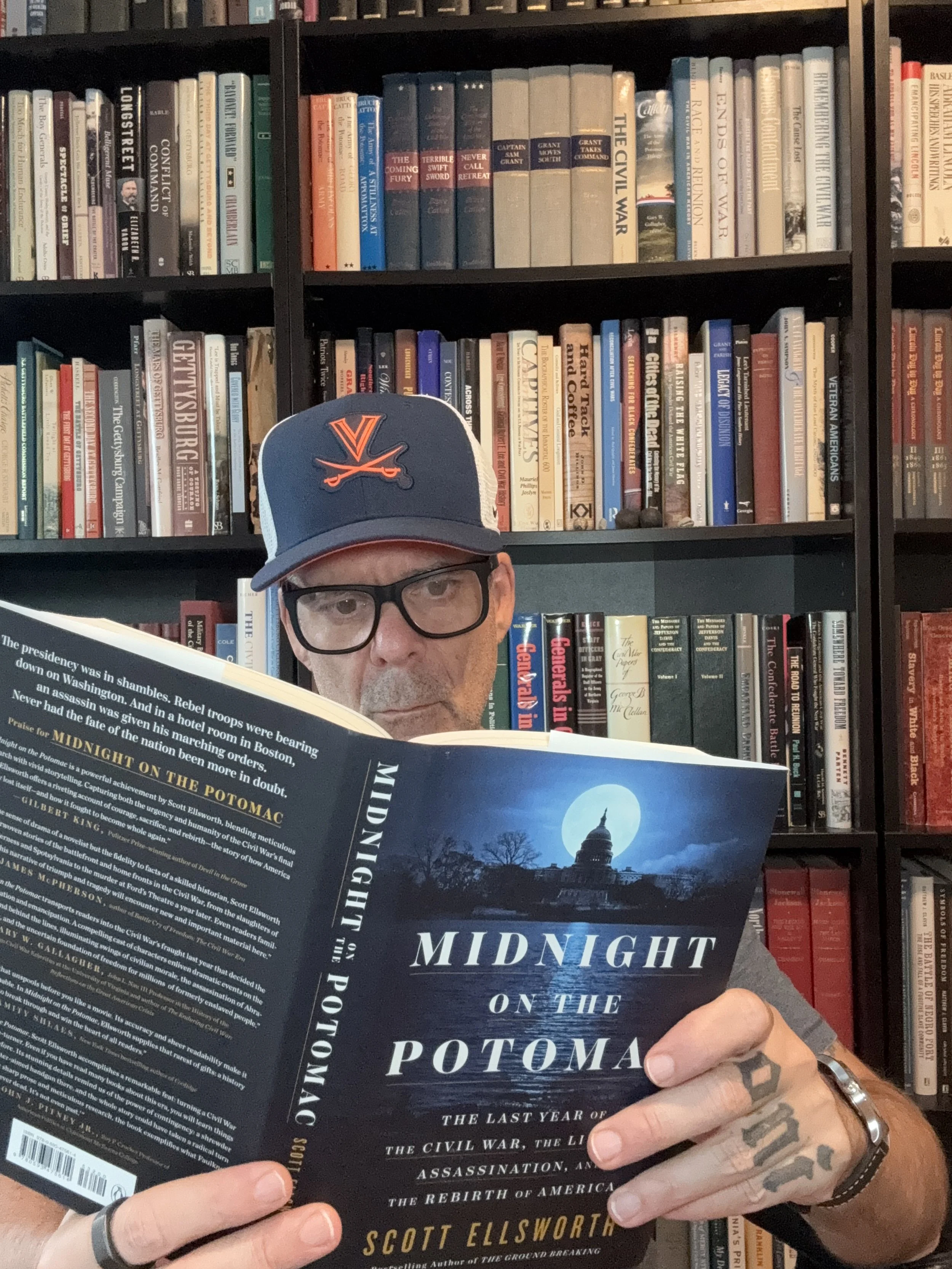Midnight on the Potomac by Scott Ellsworth
Midnight on the Potomac is one of the most captivating books I have read in a very long time. For starters, it is written beautifully, with each section unfolding like a staged play, creating an elegant, theatrical reading experience. The scenes flow rhythmically toward the culminating event: Lincoln’s assassination. Somehow the author manages to create a gripping drama out of events that we all know, more or less, in a way that holds the reader’s attention as if this were a work of great fiction that we were reading for the first time.
My students, who will be enjoying excerpts in the very near future, will most certainly appreciate the book for its focus on 1864 and 1865 as the years that made the difference. As I often explain in class, though I am sure there are those who would disagree with me on this, 1863 gets far too much attention as the great “turning point” of the war. Vicksburg and Gettysburg (of course) tend to receive the lion’s share of attention. But many fail to consider just how precarious the Union war effort was the following year. One need only read the press to gauge the sentiments of a public who were growing increasingly weary of a war that seemed unwinnable, and of a growing political movement that threatened Lincoln’s chances for reelection and quite possibly the chances for Union victory.
Lincoln himself thought his chances slim and were it not for a few bright lights among a series of Union disasters, Lincoln would likely have lost that election. We should always remember that Lincoln the savior of Union is a postwar creation of our making. Many at the time saw his leadership as hopelessly flawed. And let’s not forget, the Rebs still had plenty of fight left in them…a full year after their twin losses in the summer of 1863.
Ellsworth reminds us that Jubal Early’s Confederates were within a stone’s throw of the Washington D.C. and were poised to take it, that there were terrorist plots on northern cities being hatched by Rebel conspirators, and that John Wilkes Booth in many ways survives as “a stain on our national fabric…as a cautionary tale of hatred, manipulation, and obsession.” Honestly, you need to read on. There are some great tidbits and anecdotes throughout – some you might find surprising.
In short, Midnight on the Potomac reminds us that the course of the war, the preservation of Union, and the freedom and future of millions held in bondage was not such a sure thing in 1864 and 1865. Get it HERE, read it, and let me know what you think.
With compliments,
Keith
